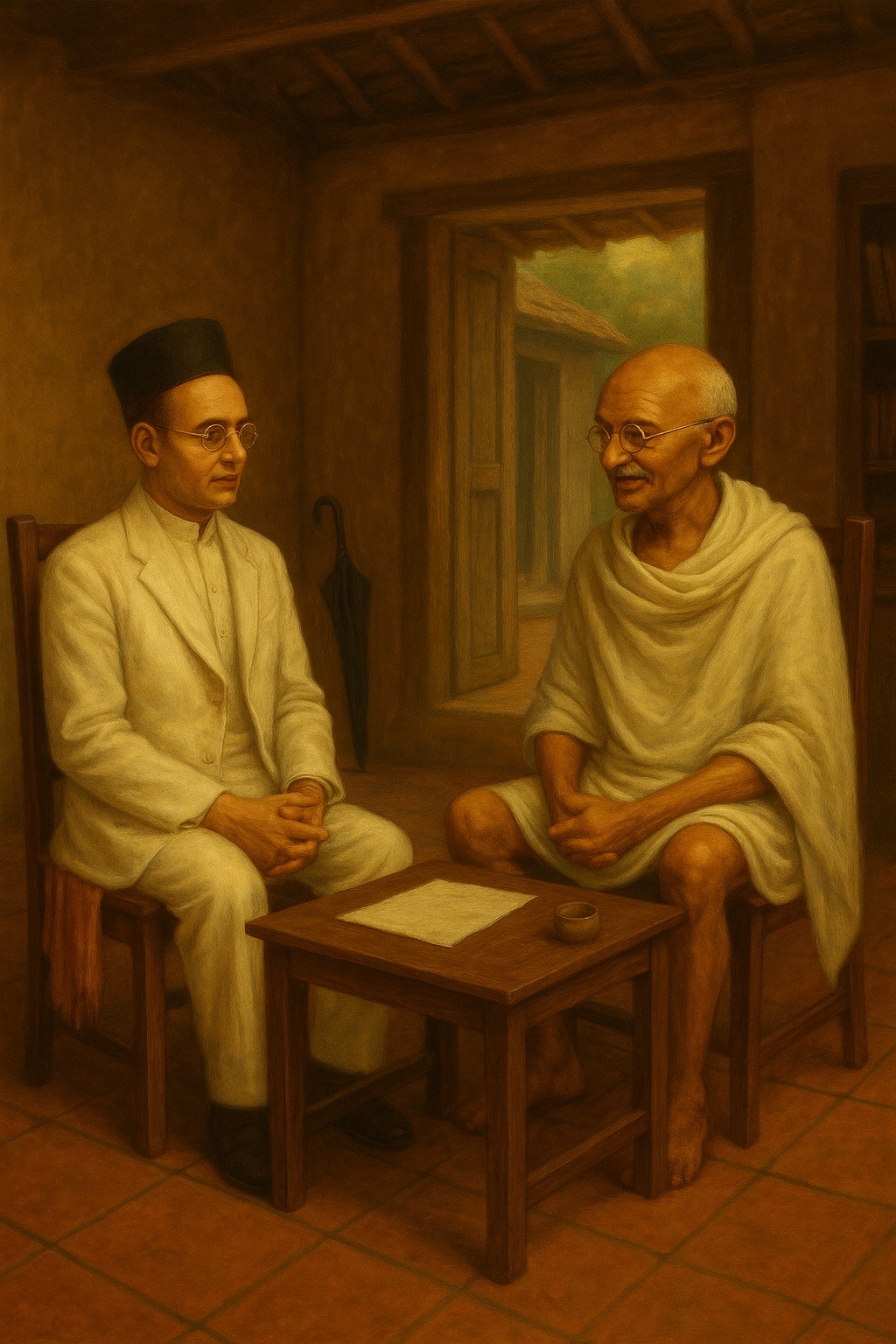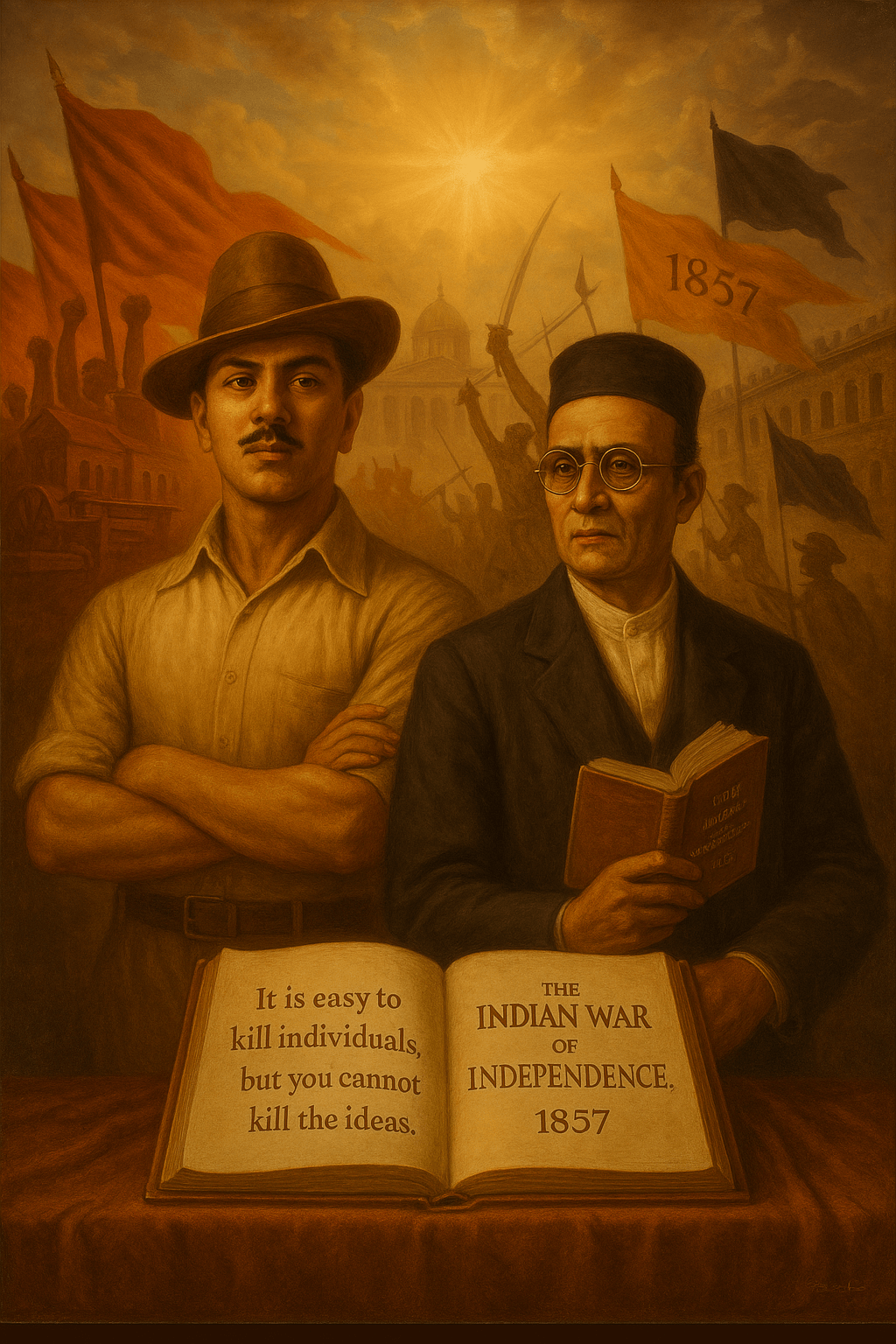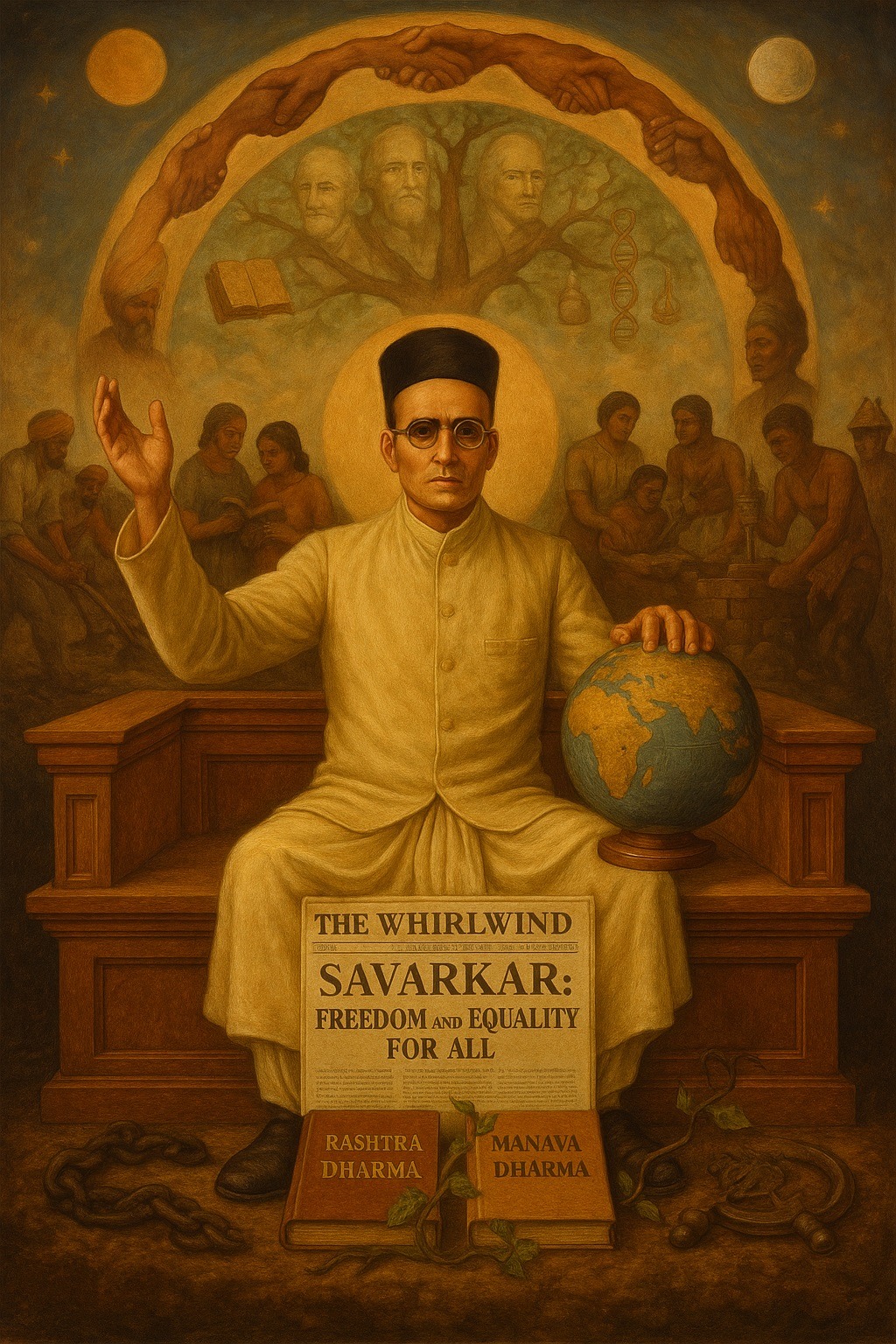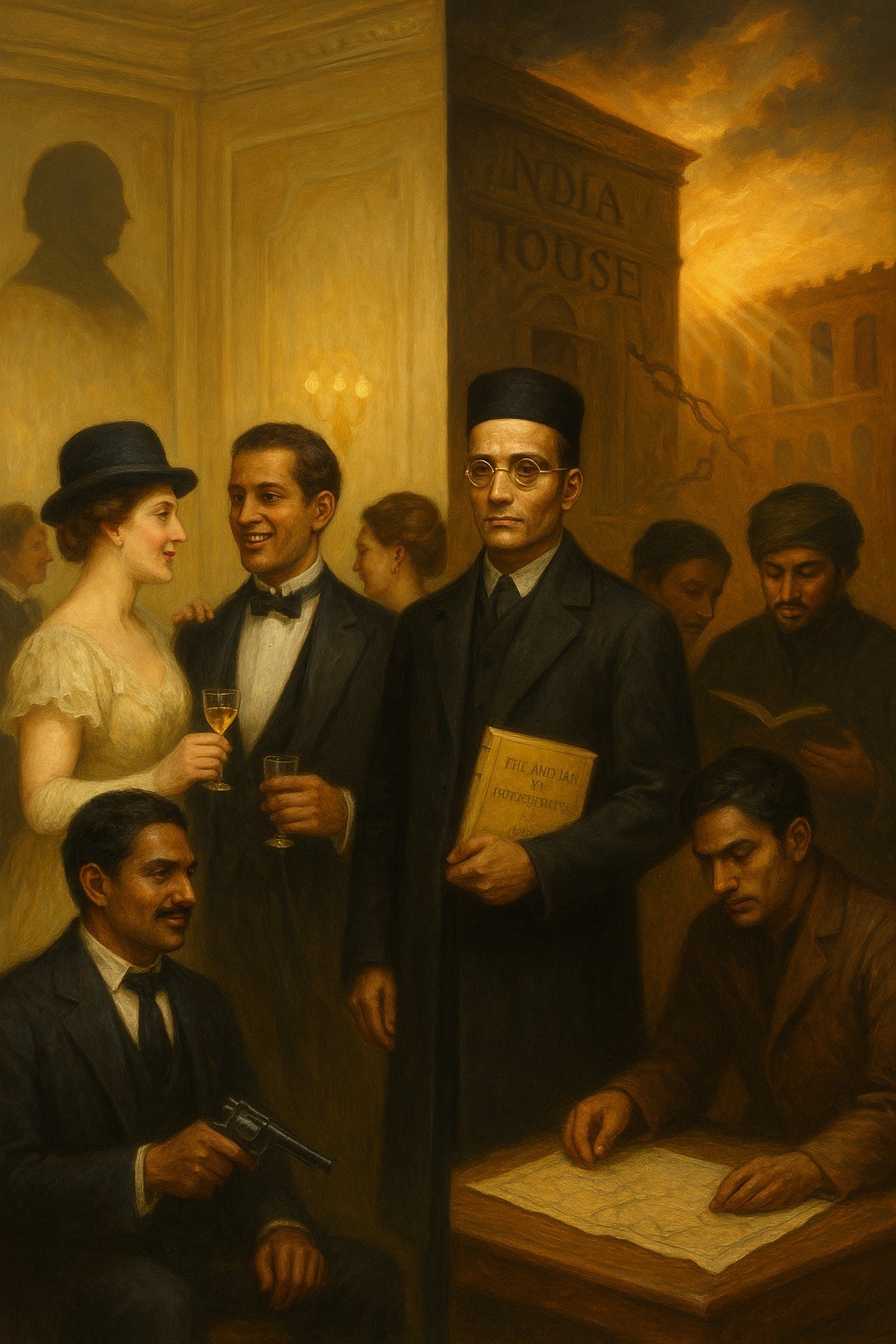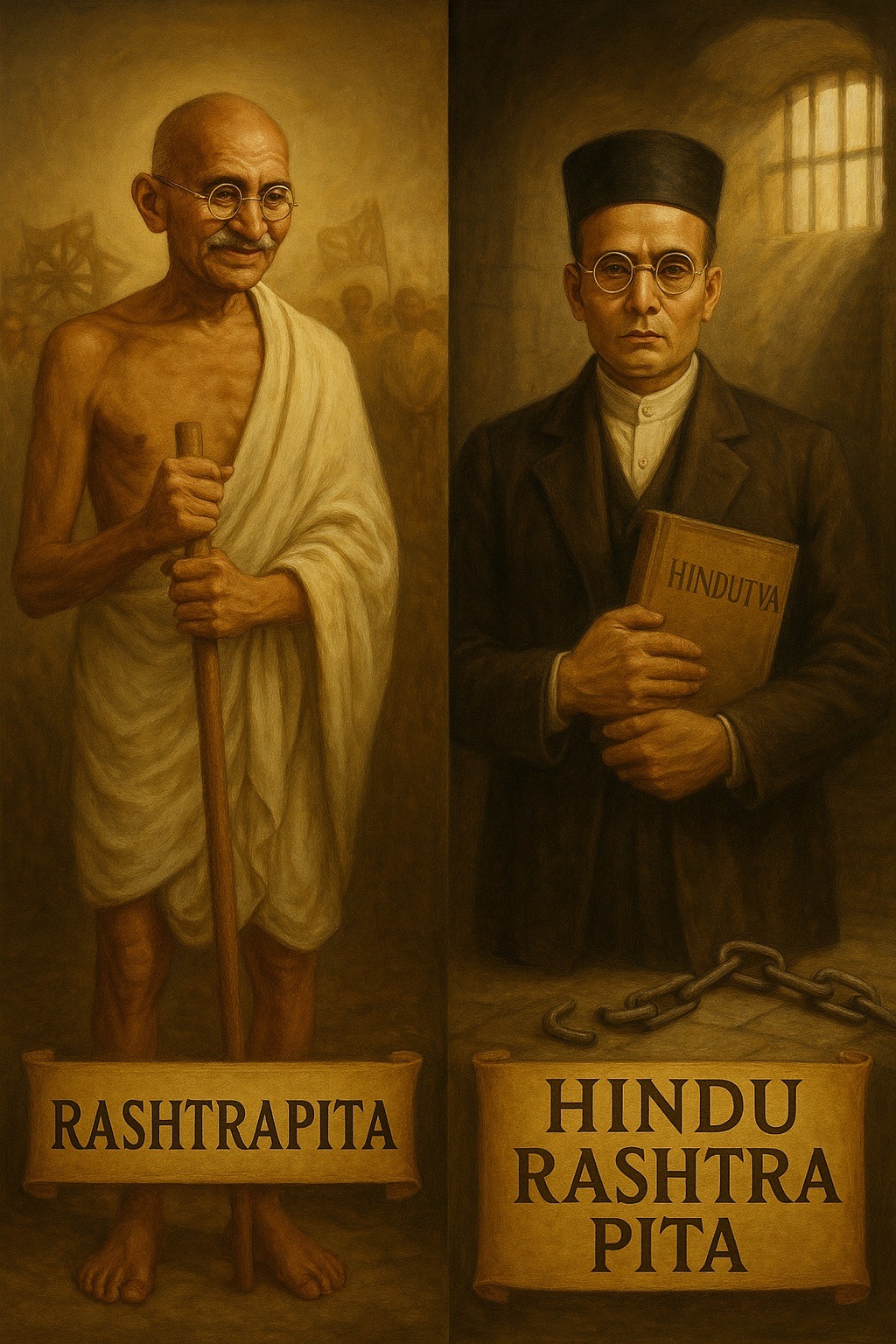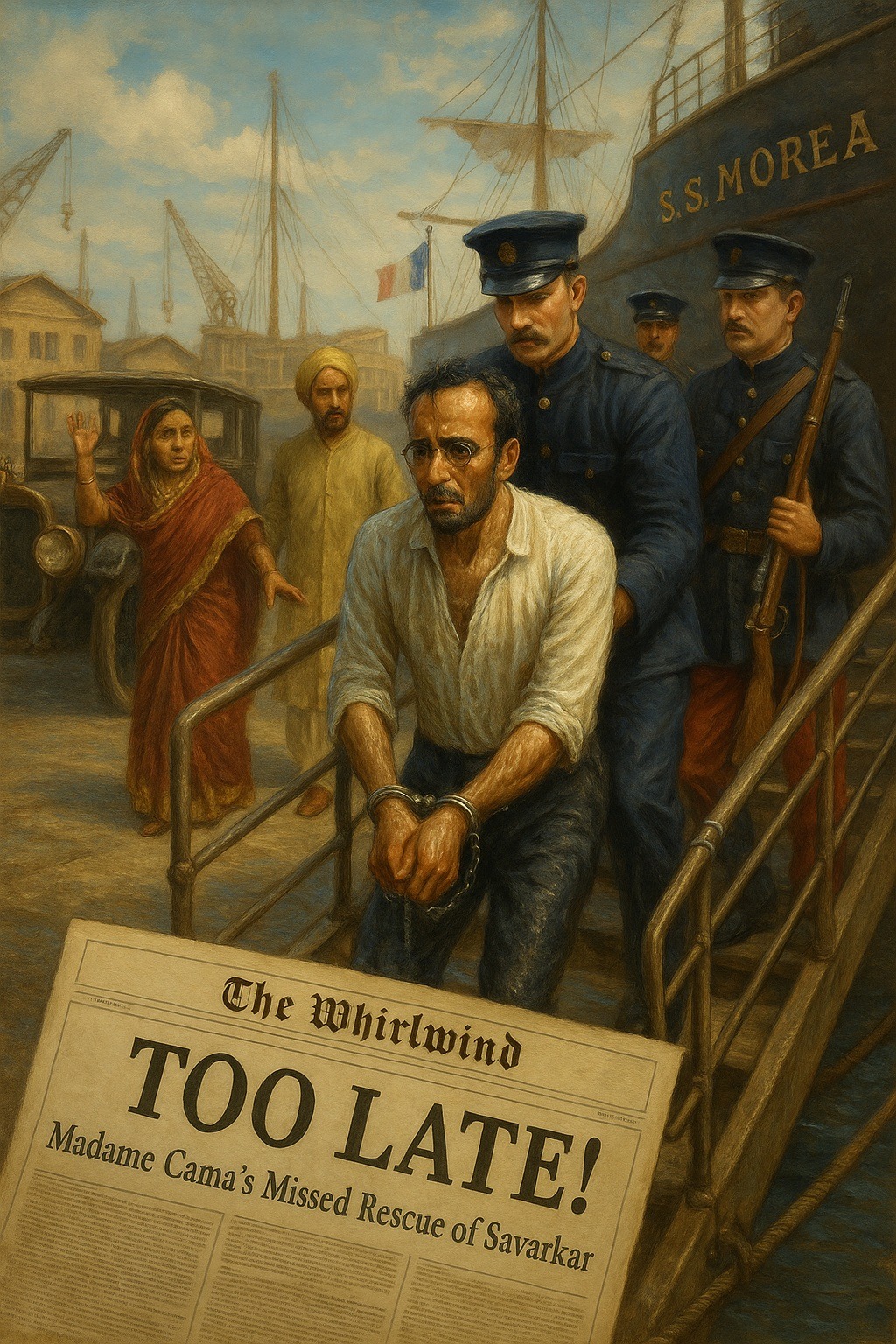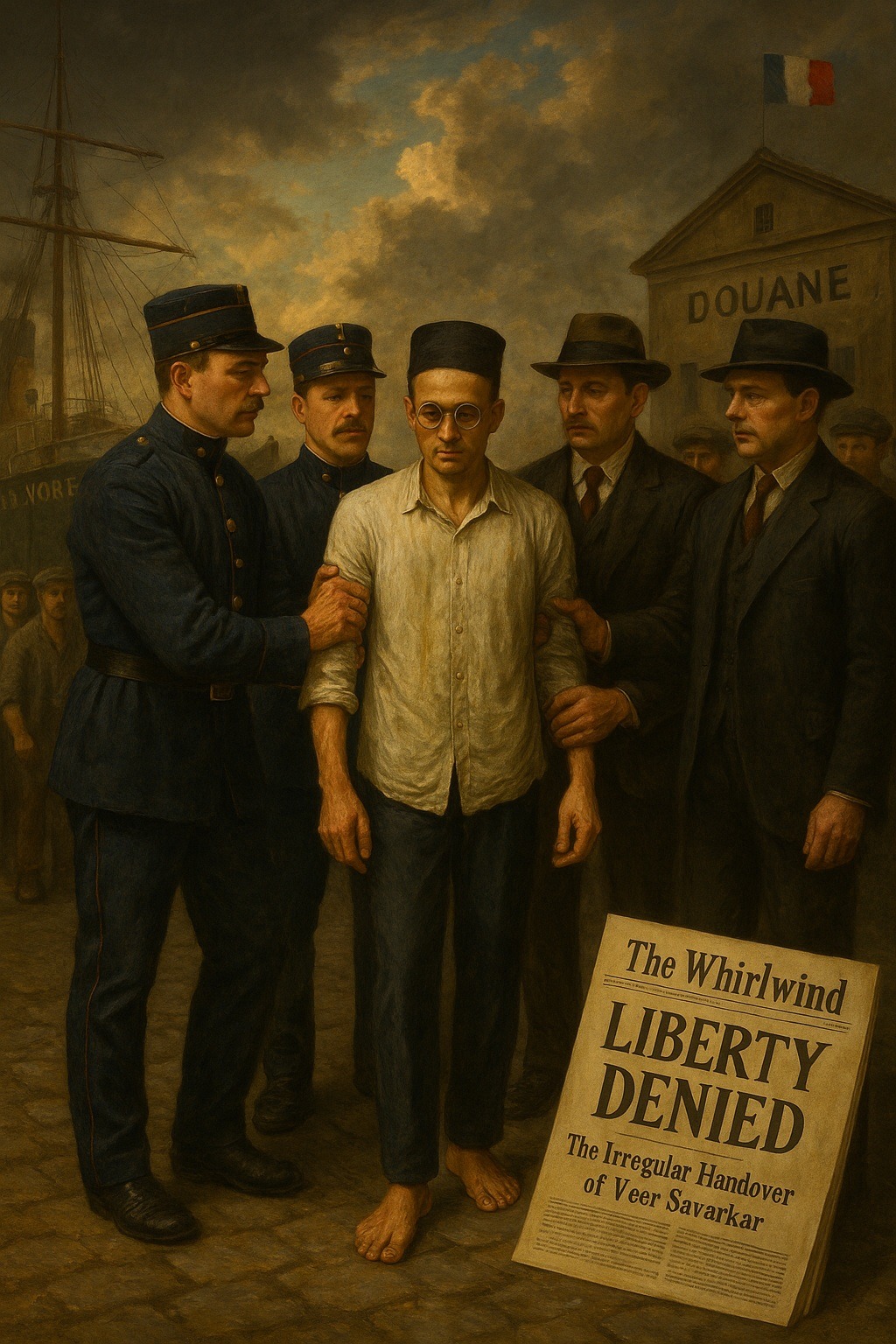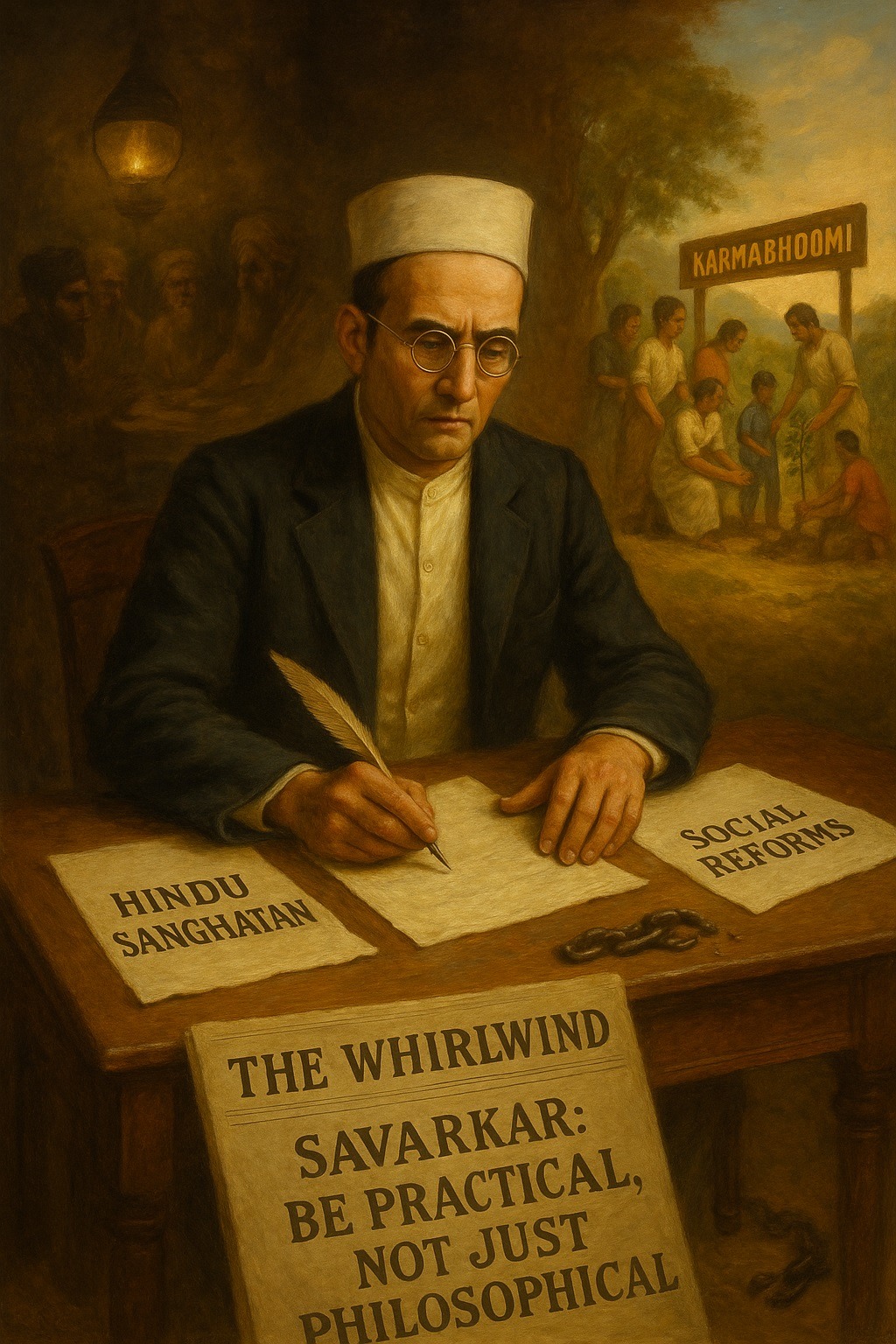Tag: IndianHistory
-
Political Dimension of Hindutva, Part 10 Vinayak Damodar (Veer) Savarkar, a pivotal figure in the Indian independence movement and a proponent of Hindutva, offered a unique and controversial vision of democracy and governance for post-colonial India. His ideas, as encapsulated in his first draft constitution, reflect his belief in an India dominated by a unified…
-
Savarkar’s Philosophy & Worldview, Part 12; Savarkar’s Five Philosophical Dimensions (5/6) Vinayak Damodar (Veer) Savarkar embedded a profound sense of realism in his philosophy. Beyond mere pragmatism, his worldview was rooted in adaptability, acknowledging that no ideology, institution, or tradition is universally applicable across all times and circumstances. His understanding of human behavior was dynamic—what…
-
Since M.K. (Mahatma) Gandhi is called by many of his followers Rashtrapita (“Father of the Nation”), it is fitting that Vinayak Damodar (Veer) Savarkar be acknowledged as Hindu Rashtra Pita—the “Father of the Hindu Nation.” This title recognizes not only his seminal contribution to the Indian freedom struggle but also his immense personal sacrifices and…
-
The dramatic escape of Vinayak Damodar (Veer) Savarkar at the port of Marseilles in July 1910 remains one of the most notable episodes of India’s revolutionary struggle. Under strict British custody, Savarkar attempted a daring flight through the porthole of the docked S.S. Morea, swimming through the harbor waters to set foot on French soil.…
-
In the historiography of India’s struggle for independence, references typically focus on imprisonment, exile, or capital punishment as instruments of colonial repression. Less frequently noted, however, is the annulment of academic qualifications as a form of political sanction. The case of Vinayak Damodar (Veer) Savarkar (1883–1966) stands out in this regard: he became the first…
-
In July 1910, Vinayak Damodar (Veer) Savarkar attempted one of the most discussed escapes in the history of anti-colonial struggles. After leaping through a porthole of the British steamer S.S. Morea as it docked at Marseilles, he swam ashore and set foot on French soil – intending to claim political asylum. The Irregular Handover of…
-
Savarkar’s Philosophy & Worldview, Part 11; Savarkar’s Five Philosophical Dimensions (4/6) Vinayak Damodar (Veer) Savarkar is often remembered for his contributions to India’s independence movement, for his activism, historical writings, and bold ideas. Among his many dimensions, his pragmatism stands out as a defining feature of his approach to social, political, and cultural challenges. Savarkar’s…

